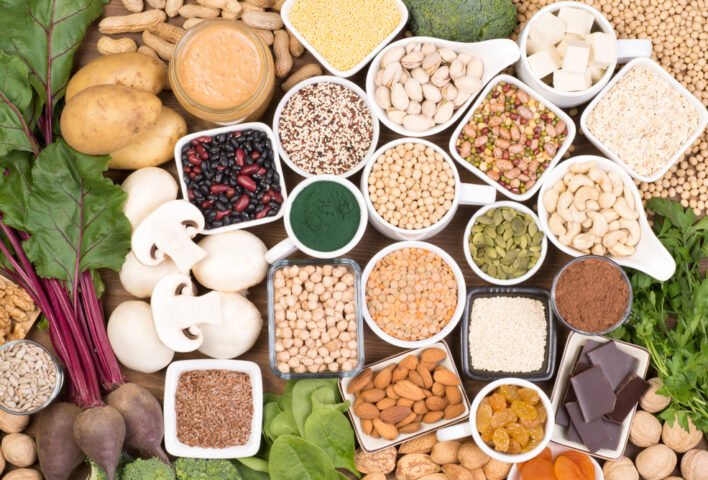Ask the Dietitian: Iron
Most vegetarians can get all the iron they need from a balanced diet. Registered dietitian Rachael Hunter takes a closer look.

When starting out as a vegetarian a key thing people might be worried about is whether they will still be able to get enough iron, and whether they should take a supplement.
What is it?
Iron is a mineral that our body needs to make red blood cells, help our immune system and keep our brain healthy.
At different stages of our life, we will need different amounts of iron. Key times when we need more is during times of growth, e.g. as teenagers, and also when people are menstruating or are pregnant. The good thing is that most of us will be able to get all the iron we need from a balanced diet rather than needing to take a supplement.
Where to find it?
Iron can be found in a wide variety of foods and when we talk about vegetarian sources you might also hear it be called ‘non-haem’ iron. Although it is less well absorbed than the animal ‘haem’ sources, our bodies can still make good use of it.
Here are some good sources:
- Beans, pulses, and lentils
- Dark green vegetables such as kale, cabbage and broccoli
- Dried fruit including dried apricots
- Fortified breakfast cereals (fortified means it has vitamins and minerals added)
Vitamin C is iron’s best friend when it comes to absorption, so having food that contains vitamin C alongside an iron-containing food will give it an extra boost and help us absorb more. This could be having a small glass of fruit juice alongside our breakfast cereal, or adding some peppers or broccoli to our bean chilli.
On the flip side, tannins found in tea and coffee hinder absorption. This means trying to minimise how often we have these drinks with a main meal so they don’t get in the way of our iron uptake.
Signs of deficiency
Most of us will be able to get all the iron we need from a varied balanced diet. Sometimes though, our iron requirement may be higher than usual, or it might not be possible to eat a good variety of iron containing foods.
Signs of mild deficiency include being more tired than usual, being low in energy and looking paler than normal. A more severe deficiency might include those symptoms, plus shortness of breath and heart palpitations.
We can’t self-diagnose ourselves with iron deficiency. If you feel you have symptoms, you can ask your GP for a blood test which will be able to assess your body’s iron stores.
In summary, most of us will be able to have enough iron by following a varied, balanced diet. This means that most of us do not need to take an additional iron supplement. There are times when people may need extra iron, particularly when they are growing, menstruating or pregnant, so it is important to pay close attention to iron in the diet during these times. If you are worried about deficiency, a simple blood test will be able to check your iron levels.
